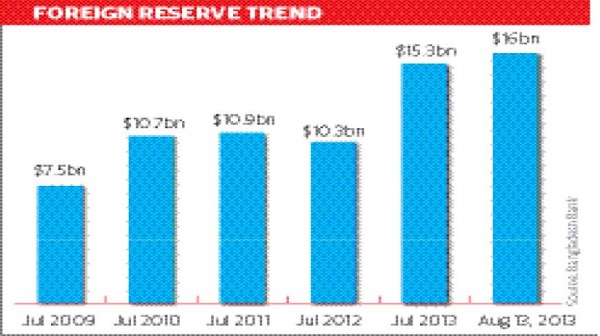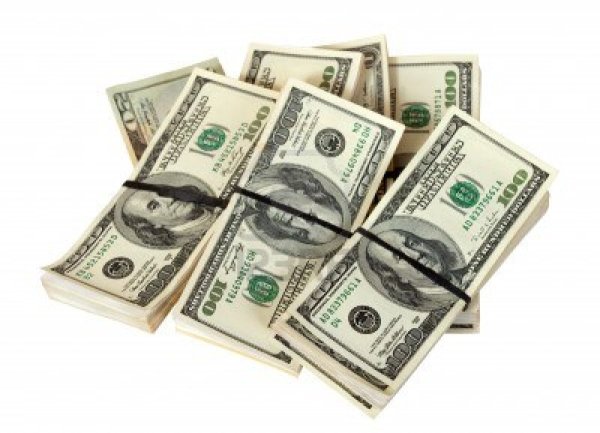The Dhaka Times Desk Bangladesh Bank The latest foreign exchange reserves have crossed 1600 million USD today on Tuesday. Through this, Bangladesh has risen to the second position in terms of foreign exchange reserves among SAARC countries in South Asia, India is at the top.
Currently, India has reserves of about 3 billion dollars. And Bangladesh is right after India with 1,600 billion USD reserves. Which in the view of analysts is a noteworthy progress in the economy and a strong position economically to face any disaster.
The amount of reserves that Bangladesh has now can meet the import expenses of the next five and a half months with this amount of reserves. The foreign exchange reserve situation in Bangladesh is so strong that many commercial banks now have enough US dollars. Many banks are also exceeding the reserve limit. In particular, commercial banks are selling dollars in their reserves. In many cases, Bangladesh Bank regularly buys dollars from commercial banks.
At present the US dollar is gradually losing its value against the rupee, while the value of the Bangladeshi rupee is increasing. A few days ago, where the price of each dollar was 80 taka, at present, each dollar is being sold at 77.75 taka. The demand for dollars in the world market is decreasing.
Bangladesh has currently reduced imports of food products, agricultural fertilizers, and non-essential items to a large extent. Where earlier Bangladesh had to spend a large part of its economy to meet its food demand, it is no longer the case. Bangladesh has now achieved self-sufficiency in agriculture after 1996.

Bangladesh Bank Foreign Reserve and Treasury Management Department General Manager (GM) Kazi Chaidur Rahman said about the increase in reserves, "There has been a big jump in the country's exports. There is also good growth in remittances. But, non-essential imports have decreased. There is no import of food products. This has increased the reserves.
Meanwhile, there are different problems in increasing reserves. Expatriate remittances are adversely affected when the rupee strengthens against the dollar and exports suffer. Due to these reasons, developing countries like Bangladesh take various steps to keep the value of dollar balanced against the national currency.



